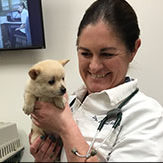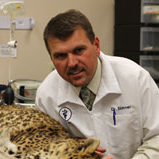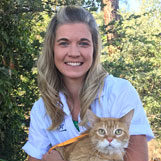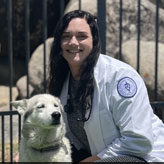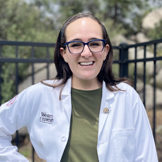Our Doctors
When asked what a veterinarian does, most people will answer that veterinarians are doctors for animals. However, many people don’t know how true that statement really is.
The average veterinarian completes 4 1/2 years of undergraduate education, taking classes such as biology, chemistry, organic chemistry, biochemistry, physics, microbiology, anatomy and physiology, math, animal science, and more…and that’s just to prepare them for veterinary school. Some veterinarians already have a Master’s degree or PhD before they enter veterinary school. Others may enter a dual DVM/MS or DVM/PhD program, and some go on after veterinary school to get additional degrees and/or specialty training.
In veterinary school, the 4-year education is equal to what medical school students receive – but for a number of animal species instead of just one. Course subjects include anatomy, physiology, pharmacology, microbiology, immunology, pathology, toxicology, biochemistry, surgical techniques, and many more, as well as in-depth courses on specific animal species and body systems. The early years are mostly spent in the classroom and laboratory to prepare the students for client-owned animal patients. Veterinary students get additional education and experience during clinical rotations, seeing animal patients under the close supervision of experienced mentors.
Once they graduate from a U.S. veterinary school, they receive a Doctor of Veterinary Medicine (DVM) or Veterinary Medical Doctor (VMD) degree (the degrees are different in other countries). They are now veterinarians and are qualified to perform the duties of the profession. A number of veterinarians also seek additional training in the form of an internship (usually one year) and/or residency (approximately 2-3 years) and may become board certified in a specialty area.
In order to practice veterinary medicine on animal patients, they must be licensed in each state in which they practice. State licensure requires a veterinarian to pass a national examination that tests their veterinary knowledge. Some states also require a veterinarian to pass a state-specific examination, most often to test their knowledge of the state’s laws and regulations governing veterinary medicine. In order to maintain their state veterinary license, veterinarians must obtain continuing education.
So, the next time you see your veterinarian, you know that your pet is being cared for by a highly trained professional.
Information provided by American Veterinary Medical Association (AMVA)

